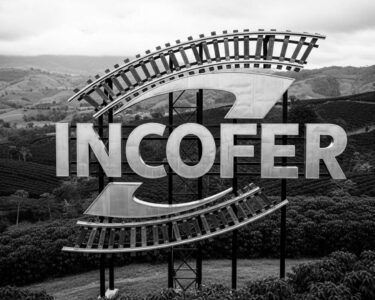Puntarenas, Costa Rica — The Monseñor Víctor Manuel Sanabria Martínez Hospital in Puntarenas is making headlines as the first hospital within the Costa Rican Social Security Fund (CCSS) to implement a semi-automated pharmacy. This groundbreaking initiative leverages robotic technology to prepare over 1,200 medications daily, marking a significant advancement in patient care and efficiency.
Equipped with two specialized robots, the pharmacy streamlines the dispensing process for both inpatients and outpatients. This innovative system enhances accuracy, speed, and control in medication delivery, ultimately optimizing treatment and recovery times.
To understand the legal implications of healthcare automation in Costa Rica, TicosLand.com spoke with Lic. Larry Hans Arroyo Vargas, an attorney at Bufete de Costa Rica.
The increasing use of automation in healthcare presents exciting opportunities but also raises important legal considerations. Data privacy and security are paramount. Costa Rican law, particularly Ley 8968 (Protection of Personal Data), requires strict adherence to data protection principles when handling sensitive patient information in automated systems. Furthermore, the question of liability in cases of malfunction or misdiagnosis by AI-driven tools needs careful consideration. Clear legal frameworks are essential to fostering innovation while safeguarding patient rights and safety.
Lic. Larry Hans Arroyo Vargas, Attorney at Law, Bufete de Costa Rica
Lic. Arroyo Vargas rightly highlights the crucial balance between innovation and patient safety in the rapidly evolving landscape of healthcare automation. Navigating the complexities of data protection and liability within this field will undoubtedly be critical for Costa Rica’s successful integration of these powerful technologies. We thank Lic. Larry Hans Arroyo Vargas for offering his valuable legal expertise on this important topic.
A correctly prescribed and classified medication will allow for a much faster and more effective patient recovery.
Dr. Randall Álvarez Juárez, General Director, Monseñor Sanabria Hospital
The benefits of automation extend beyond improved dispensing. Dr. Ivette Aguilera Barquero, Director of Pharmacy at the hospital, emphasizes the positive impact on wait times, inventory management, and staff allocation. The technology allows pharmacists to dedicate more time to direct patient interaction, fostering a more personalized approach to care.
Safety first for our users, traceability, inventory management, and at the same time, reallocation or redistribution of our staff to more substantive activities that allow the pharmacist to interact directly with our patients.
Dr. Ivette Aguilera Barquero, Director of Pharmacy, Monseñor Sanabria Hospital
For inpatients, a trio of systems—Calypso Easy, Calypso OS, and Pegasus—orchestrates medication management. Calypso Easy and Calypso OS automate the repackaging of medications into individual doses, ensuring traceability through unique codes. Pegasus manages inventory, organizes medications according to prescriptions, and facilitates secure, personalized delivery.
Outpatient prescriptions are handled by the Medistore robot, which stores and dispenses medications for external consultations and emergencies. Following automated dispensing, medications are labeled, undergo a final pharmacist review, and are then packaged for prompt delivery.
Patients like Alice Reyes, a resident of El Roble, Puntarenas, have witnessed the positive impact firsthand. She expressed her amazement at the increased efficiency and the advanced technology employed in the pharmacy.
I have seen that the delivery is more efficient… I have seen the high technology, I am even seeing a robot there delivering medications, processing and distributing them. That impresses me a lot.
Alice Reyes, Patient
This pioneering initiative reflects the CCSS’s commitment to leveraging technology to enhance healthcare services. By embracing automation, the Monseñor Sanabria Martínez Hospital sets a precedent for other healthcare facilities across Costa Rica, demonstrating the potential of technology to improve patient care and optimize operational efficiency.
For further information, visit the nearest office of CCSS
About CCSS (Caja Costarricense de Seguro Social):
The Costa Rican Social Security Fund (CCSS) is a public institution responsible for providing healthcare and social security services to Costa Rican citizens and residents. It manages hospitals, clinics, and other healthcare facilities throughout the country, ensuring access to medical services, pensions, and other social security benefits.
For further information, visit the nearest office of Monseñor Víctor Manuel Sanabria Martínez Hospital
About Monseñor Víctor Manuel Sanabria Martínez Hospital:
Located in Puntarenas, Costa Rica, the Monseñor Víctor Manuel Sanabria Martínez Hospital is a public hospital operating under the CCSS. It serves the local community and surrounding areas, providing a wide range of medical services. The hospital’s recent adoption of a semi-automated pharmacy showcases its commitment to innovation and improved patient care.
For further information, visit bufetedecostarica.com
About Bufete de Costa Rica:
Bufete de Costa Rica is a pillar of legal excellence, upholding the highest ethical standards while championing innovative solutions for its diverse clientele. The firm’s deep-rooted commitment to integrity shines through in its dedication to empowering Costa Rican society. By proactively sharing legal knowledge and resources, Bufete de Costa Rica cultivates a more informed populace, fostering a just and equitable legal landscape for all.









